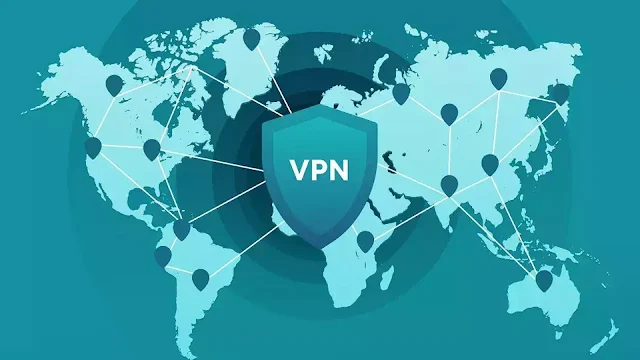Understanding VPNs: An In-Depth Guide to Virtual Private Networks
What is a VPN?
A Virtual Private
Network (VPN) is a technology that establishes a secure and encrypted
connection over a less secure network, such as the internet. VPNs are used to
protect online activities and to create a private network from a public
internet connection. When you use a VPN, your internet traffic is routed
through a server managed by the VPN provider, which masks your IP address and
encrypts your data. This helps to safeguard your privacy, enhance security, and
bypass geographical restrictions.
History of VPNs
VPN technology was
first conceived in 1996 by a Microsoft employee named Gurdeep Singh-Pall. The
initial version of VPN was called PPTP (Point-to-Point Tunneling Protocol),
designed to create a secure point-to-point connection over the internet. Since
then, VPN technology has evolved significantly, with numerous protocols and
enhancements introduced to improve security, speed, and functionality.
Correct
Use of a VPN
To use a VPN
correctly, follow these guidelines:
1.
Choose a
Reputable Provider: Opt for a
VPN service with a strong reputation for privacy, security, and performance.
Avoid free VPNs that may compromise your privacy.
2.
Select
the Right Protocol: Different
VPN protocols offer various levels of security and speed. Common protocols
include OpenVPN, IKEv2/IPsec, and WireGuard. Choose the protocol that best
meets your needs.
3.
Enable
Encryption: Ensure that
encryption is turned on in your VPN settings. This protects your data from
being intercepted by third parties.
4.
Keep
Software Updated: Regularly
update your VPN software to benefit from the latest security features and
patches.
5.
Use Kill
Switch: A kill switch feature
prevents your internet connection from dropping if the VPN connection fails,
ensuring your data remains protected.
6.
Avoid
Free VPNs with Uncertain Policies:
Free VPN services often come with limitations or data logging policies that may
compromise your privacy. Opt for paid services with clear privacy policies.
Types
of VPNs
1.
Remote
Access VPN: This type allows
users to connect to a remote network from anywhere in the world. It's commonly
used by individuals to access their home or work networks securely.
2.
Site-to-Site
VPN: Typically used by
businesses, site-to-site VPNs connect entire networks at different locations,
allowing secure communication between them.
3.
Client-to-Site
VPN: This type provides secure
access for individual clients to a central network, often used by remote
workers to access company resources.
4.
Layer 2
VPN: Operates at the data link
layer (Layer 2) of the OSI model and is used to create a virtual LAN over the
internet. Examples include L2TP (Layer 2 Tunneling Protocol).
5.
Layer 3
VPN: Operates at the network
layer (Layer 3) and includes protocols like IPsec and GRE (Generic Routing
Encapsulation), which are used for secure network communication.
Paid
vs. Free VPNs
There are both
paid and free VPN services available, each with its advantages and drawbacks:
·
Paid VPNs: These services typically offer better performance,
more robust security features, and a no-logs policy. They often provide
customer support and a wider range of servers. Examples include NordVPN,
ExpressVPN, and CyberGhost.
·
Free VPNs: While these might be tempting due to zero cost, they
often come with limitations such as restricted bandwidth, fewer server options,
and potential privacy concerns. Free VPNs may log your data or show ads.
Examples include ProtonVPN's free version and Windscribe's free tier.
Most
Used VPNs
Some of the most
popular and widely used VPN services include:
1.
NordVPN: Known for its strong security features, large server
network, and reliable performance.
2.
ExpressVPN: Offers high-speed servers, strong encryption, and a
user-friendly interface.
3.
CyberGhost: Provides a wide range of servers, good privacy
policies, and affordable plans.
4.
Surfshark: Features unlimited device connections and strong
privacy features.
5.
Private
Internet Access (PIA): Popular
for its robust security, privacy features, and customizable settings.
Names
of Free VPNs
Here are some
well-known free VPNs, though users should be cautious and review their privacy
policies:
1.
ProtonVPN
Free: Offers a limited number of
servers and slower speeds but has a good privacy policy.
2.
Windscribe
Free: Provides 10GB of free data
per month and a reasonable number of servers.
3.
Hotspot
Shield Free: Allows limited
usage with ads and a daily data cap.
4.
TunnelBear
Free: Offers 500MB of free data
per month and a user-friendly interface.
5.
Hide.me
Free: Provides 10GB of data per
month and a selection of servers.
Conclusion
VPNs play a crucial role in maintaining online privacy and security. While there are many options available, choosing the right VPN involves understanding the different types, features, and costs associated with them. For enhanced security and performance, paid VPN services are generally recommended over free ones. Always research and choose a VPN that aligns with your privacy needs and usage requirements.








No comments